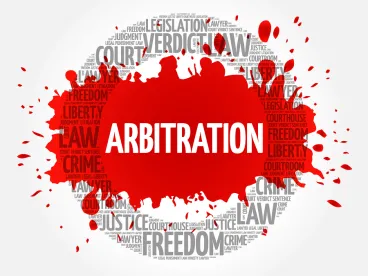Traditionally, companies have preferred to resolve their business disputes through arbitration, rather than venturing into what is often considered the "black hole" of litigation. The common perception is that arbitration is faster and cheaper, and that the fate of one's business is best left to an arbitrator, rather than a panel of jurors who are likely to be less sophisticated and more biased.
Because of that view, companies have, for many years, fought almost by rote to include arbitration provisions in their agreements. They have also fought hard to have the courts include within those clauses any dispute remotely connected to the agreement. As a result, just about anything can be arbitrated today, from an employment discrimination claim (Penn Plaza LLC v. Steven Pyett), to a securities claim (Shearson/American Express Inc. v. McMahanon), even to a RICO claim (Pacificare Health Systems, Inc. v. Jeffrey Book).
In fact, the public policy in favor of enforcement is so strong that once an agreement includes an arbitration clause, it is close to iron clad that any dispute connected to that agreement will be arbitrated. As a matter of fact, the arbitrator probably even has the right to decide if he or she has jurisdiction over the very dispute that is at issue. (See "Parties to a Contract Take Heed: The Arbitration Clause Matters Too" from the June 2009 issue.)
But here's the real question, and one that is too often ignored. Is arbitration really what you want? Despite numerous advantages, arbitration has its dark side. Accordingly, before you insert an arbitration clause into your next business agreement, here are some factors to consider.
It is much easier for a claimant to state a baseless claim in arbitration, costing unnecessary time and money to defend. Two recent United States Supreme Court decisions have raised the bar regarding the facts that must be alleged in a complaint in federal court to survive a motion to dismiss. In Ashcroft v. Iqbal and Bell Atlantic v. Twombly, the court held that a plaintiff must allege facts pleading a "plausible" claim. (See "Notice Pleading: A Recent Supreme Court Decision May Upset an Ingrained Legal Standard" from the July 2009 issue.) In arbitration, however, the same standard is not required, and it is much easier for a claimant to bring a baseless claim that you will be forced to spend time and resources to defend.
Arbitrators may not have the procedural rules needed to deal with frivolous claims on an expedited basis. If a claim is baseless from the beginning, there may be no effective mechanism by which to obtain a dismissal in arbitration prior to a final hearing. Thus, you may end up spending a substantial amount of time and money in hearings and preparation that would not be necessary in federal or state court.
Arbitrators do not have to follow the law, and there are fewer checks and balances. Unlike judges and juries, arbitrators are not compelled to follow the law. In fact, their decisions can be made on the grounds of what they perceive to be fair, rather than what the law directs. Thus, even when arbitrators make a decision that seems to run contrary to the law, there is little you can do about it. According to the Supreme Court's ruling in Hall Street Associates, LLC v. Mattel, Inc., a mere misstate of law is not a basis for overturning an arbitration award, and there is no right to appeal.
Also keep in mind that arbitrators are not necessarily attorneys who are well versed or even familiar with the law. As a result, their decisions may be inconsistent and contrary to applicable precedent. Although this might not be a problem in a simple dispute, the ramifications could be quite significant if the claim is based, for example, on federal securities law or is a similar complex matter. Those types of disputes might be better resolved in court by a judge who has a grasp of the law and how to apply it to the facts.
Arbitration has become costly in other ways. The discovery process that is prevalent in litigation is now a regular part of arbitration as well, not only increasing the cost but also lengthening the process. In addition, the fees for both the arbitration and the arbitrators have mushroomed. Although it takes only a few hundred dollars to file a lawsuit, it can cost many thousands of dollars in filing fees to bring an arbitration proceeding, depending on the amount being claimed as damages. And unlike a traditional court proceeding, where judges are compensated by the state, parties in an arbitration must pay the arbitrators out of their own pockets.
In light of these potential pitfalls, companies should consider all of the factors, both pro and con, before adding arbitration clauses to their business agreements. In the end, arbitration is not always the quickest and cheapest method to put a dispute to bed.



 />i
/>i

